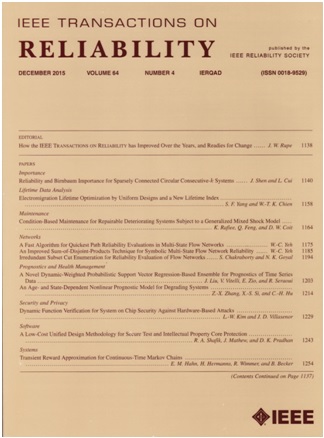UAV-Enabled Energy-Efficient Aerial Computing: A Federated Deep Reinforcement Learning Approach
IF 5.7
2区 计算机科学
Q1 COMPUTER SCIENCE, HARDWARE & ARCHITECTURE
引用次数: 0
Abstract
Aerial computing paradigms, particularly those involving UAVs as access points and radio towers, show significant promise for local data analysis and real-time service provision in aerial access networks. However, the limited battery life of UAVs, compounded by the high-energy demands of communication tasks and prolonged computation delays, presents a significant challenge. Deep reinforcement learning (DRL) enables UAVs to autonomously optimize their operations, reducing both energy consumption and latency. Nevertheless, the prolonged learning process of DRL can lead to inefficiencies, especially in dynamic environments where the equitable participation of UAVs is crucial. To address these issues, we introduce a fairness-oriented federated learning (FL) scheme that employs importance sampling to select UAVs for training, ensuring equitable utilization of each UAV's data. Furthermore, we integrate this FL fairness scheme into the design of DRL algorithms, termed FedDRL. This algorithm jointly optimizes the computation capabilities and bandwidth allocation of UAVs to minimize system costs. Numerical results demonstrate the fairness of FedDRL in fFL networks. Specifically, compared to other state-of-the-art DRL algorithms (e.g., TD3 and DDPG), FedDRL reduces system costs by 43.82% and 49.45%, respectively.无人机支持的高能效空中计算:一种联合深度强化学习方法
空中计算范例,特别是那些涉及无人机作为接入点和无线电塔的范例,在空中接入网中显示出对本地数据分析和实时服务提供的重大承诺。然而,无人机有限的电池寿命,加上通信任务的高能量需求和长时间的计算延迟,提出了一个重大挑战。深度强化学习(DRL)使无人机能够自主优化其操作,降低能耗和延迟。然而,DRL的长期学习过程可能导致效率低下,特别是在无人机公平参与至关重要的动态环境中。为了解决这些问题,我们引入了一种面向公平的联邦学习(FL)方案,该方案采用重要性抽样来选择用于训练的无人机,确保公平利用每个无人机的数据。此外,我们将这种FL公平性方案集成到DRL算法的设计中,称为FedDRL。该算法综合优化了无人机的计算能力和带宽分配,使系统成本最小化。数值结果证明了FedDRL在fFL网络中的公平性。具体来说,与其他最先进的DRL算法(如TD3和DDPG)相比,FedDRL分别降低了43.82%和49.45%的系统成本。
本文章由计算机程序翻译,如有差异,请以英文原文为准。
求助全文
约1分钟内获得全文
求助全文
来源期刊

IEEE Transactions on Reliability
工程技术-工程:电子与电气
CiteScore
12.20
自引率
8.50%
发文量
153
审稿时长
7.5 months
期刊介绍:
IEEE Transactions on Reliability is a refereed journal for the reliability and allied disciplines including, but not limited to, maintainability, physics of failure, life testing, prognostics, design and manufacture for reliability, reliability for systems of systems, network availability, mission success, warranty, safety, and various measures of effectiveness. Topics eligible for publication range from hardware to software, from materials to systems, from consumer and industrial devices to manufacturing plants, from individual items to networks, from techniques for making things better to ways of predicting and measuring behavior in the field. As an engineering subject that supports new and existing technologies, we constantly expand into new areas of the assurance sciences.
 求助内容:
求助内容: 应助结果提醒方式:
应助结果提醒方式:


